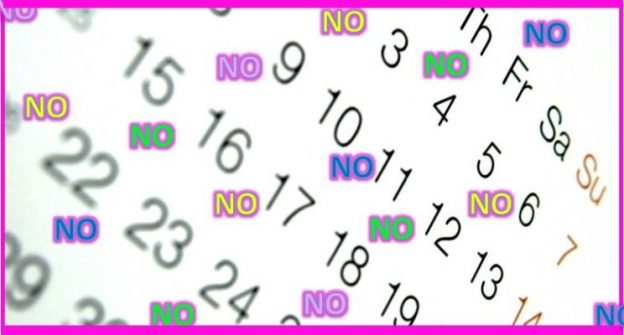My excellent colleague Dr. Julia Kalish has been running something she calls No-No-No-November this past month. The concept, per Kalish’s blog post: “reduce, remove, quit, stop, and minimize as many nonessential tasks, belongings, activities, people, habits, and projects”. I love this idea, even though if there’s something about me you should know it’s that I am constantly saying yes to things. I do not consider the two to be mutually exclusive: you can say no in order to say yes to other things.
November is a great time to say NO to things in teaching, as you head into finals season and are probably thinking about what will go into your next syllabus. It’s been my goal since around early October to quit something every two weeks or so, or at least resolve to quit it. So far, I’ve resigned at least unofficially from my post as an editor of a column. I moved meetings with my supervisor from every two weeks to monthly. At first it’s really scary to quit things, because I often wonder that if I quit something if I am ever going to be able to get to that thing again. But then I remember all of things that I get to say yes to because I said no.
I love Julia’s idea, and I’m trying to extend the idea of NO to my own teaching. Here are some things I plan to say no to in the coming year:
- NO to student emails. This next year when I teach my 120-student course, I’m going to have my Graduate Assistant answer all of my student emails in my large class. This is mainly for mostly practical reasons, since currently half of the students email the GA and the other half email the instructor. Why not simplify? Half of the time, I end up forwarding the email to the GA anyway.
- NO to students turning things in on paper. It’s 2017, folks. You shouldn’t need to hand anything out. I’m resolving in the future as much as possible to only use paper when I need students to look at multiple things at the same time (the two monitor problem). And a definite NO to returning things to student on paper.
- NO to database/Google comparison. This is more librarian focused, but I just hate it when people do this comparison. There’s no situation in the real world where you would try multiple different databases and just compare the results. That’s not a thing that real people do. More specifically, the results from one large database doesn’t reflect the total of databases..
- NO to 5 minute guest lectures. If I’m there for less than 20 minutes, it’s like I wasn’t there at all. I don’t do many of these, but I am resolving in the future to do even less of these, maybe even none.
- NO to internalizing my student’s performance as my performance as a professor. This is a tricky one, but I’m going to commit to saying NO. Students are adults, they can choose not to learn. I’m very critical of myself, I want to do well, but doing well isn’t putting too much stake on the performance of my students.
What can you say NO to in your teaching?
